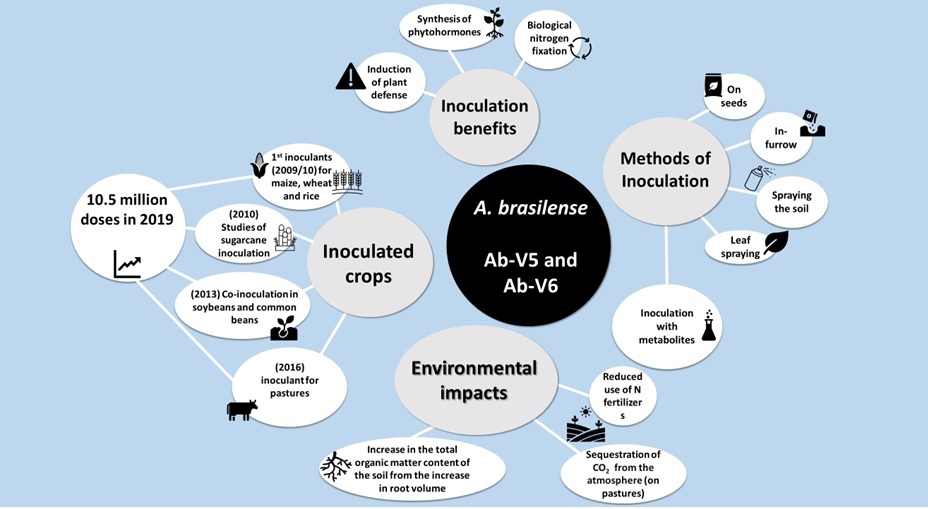Outstanding impact of Azospirillum brasilense strains Ab-V5 and Ab-V6 on the Brazilian agriculture: Lessons that farmers are receptive to adopt new microbial inoculants
24/Feb/2021
ABSTRACT For decades, researchers around the world search for strategies aiming at higher sustainability in agriculture. The microbial inoculants or biofertilizers are biotechnological products used for different purposes, the main one being to totally or partially replace chemical fertilizers, with an emphasis on N-fertilizers, reducing costs of production and decreasing the contamination of the soil, water, and atmosphere. Depending on the microorganism and the inoculated crop, inoculants can also induce plant protection to abiotic and biotic stresses and positively modify […]
Growth promotion of pineapple ‘vitória’ by humic acids and burkholderia spp. during acclimatization
01/Oct/2010
In vitro propagation of pineapple produces uniform and disease-free plantlets, but requires a long period of acclimatization before transplanting to the field. Quicker adaptation to the ex vitro environment and growth acceleration of pineapple plantlets are prerequisites for the production of a greater amount of vigorous, well-rooted planting material. The combination of humic acids and endophytic bacteria could be a useful technological approach to reduce the critical period of acclimatization. The aim of this study was to evaluate the initial […]
Interaction of new diazotrophic endophytic bacteria and nitrogen fertilization on wheat crop under field conditions
01/Jun/2008
Diazotrophic bacteria belonging to different species may be associated with grasses, such as wheat, promoting increases in plant growth and grain yield. A field experiment was carried out to evaluate the benefits and economic viability of inoculation of new homologous isolates of endophytic diazotrophic bacteria on wheat genotypes, under varying nitrogen doses. Three strains of endophytic diazotrophic bacteria (IAC-AT-8- Azospirillum brasiliense, IAC-HT-11- Achromobacter insolitus, IAC-HT-12- Zoogloea ramigera) were tested on two wheat genotypes (ITD- 19-Triticum durum L. and IAC-370-Triticum aestivum […]
Inoculation of Azospirillum amazonense in two maize genotypes under different N treatments
01/Jun/2008
The adaptability of maize genotypes to environments where nutrients are not readily available may be related to an adaptation to the predominance of the soil nitric and ammoniacal forms of N and to the association with beneficial microorganisms such as diazotrohpic bacteria and/or plant growth promoters. The objective of this study was to evaluate the response of two maize intervarietal hybrids to different nitrogen doses and forms as well as the effect of inoculation with A. amazonense. The experiment was […]

